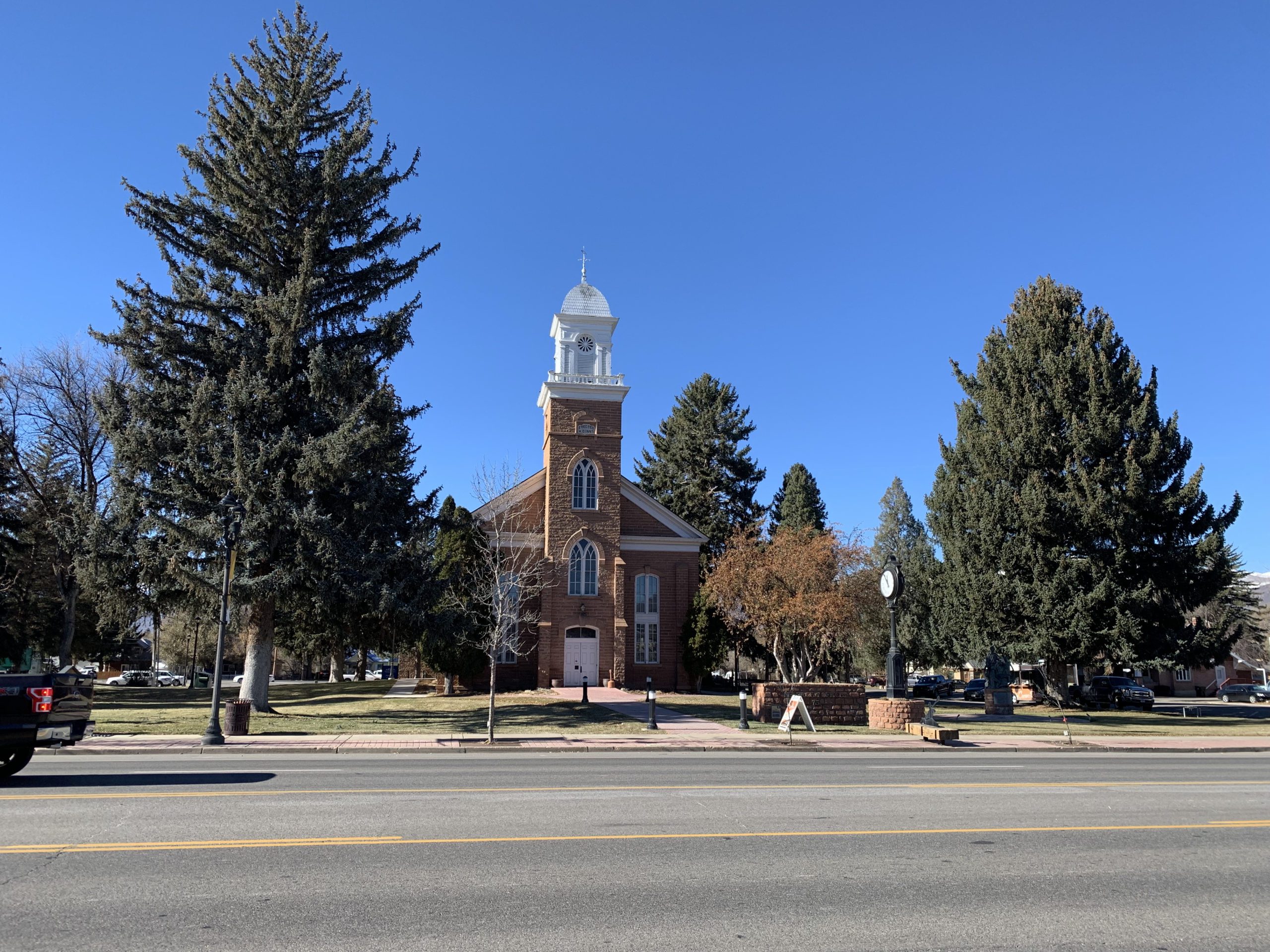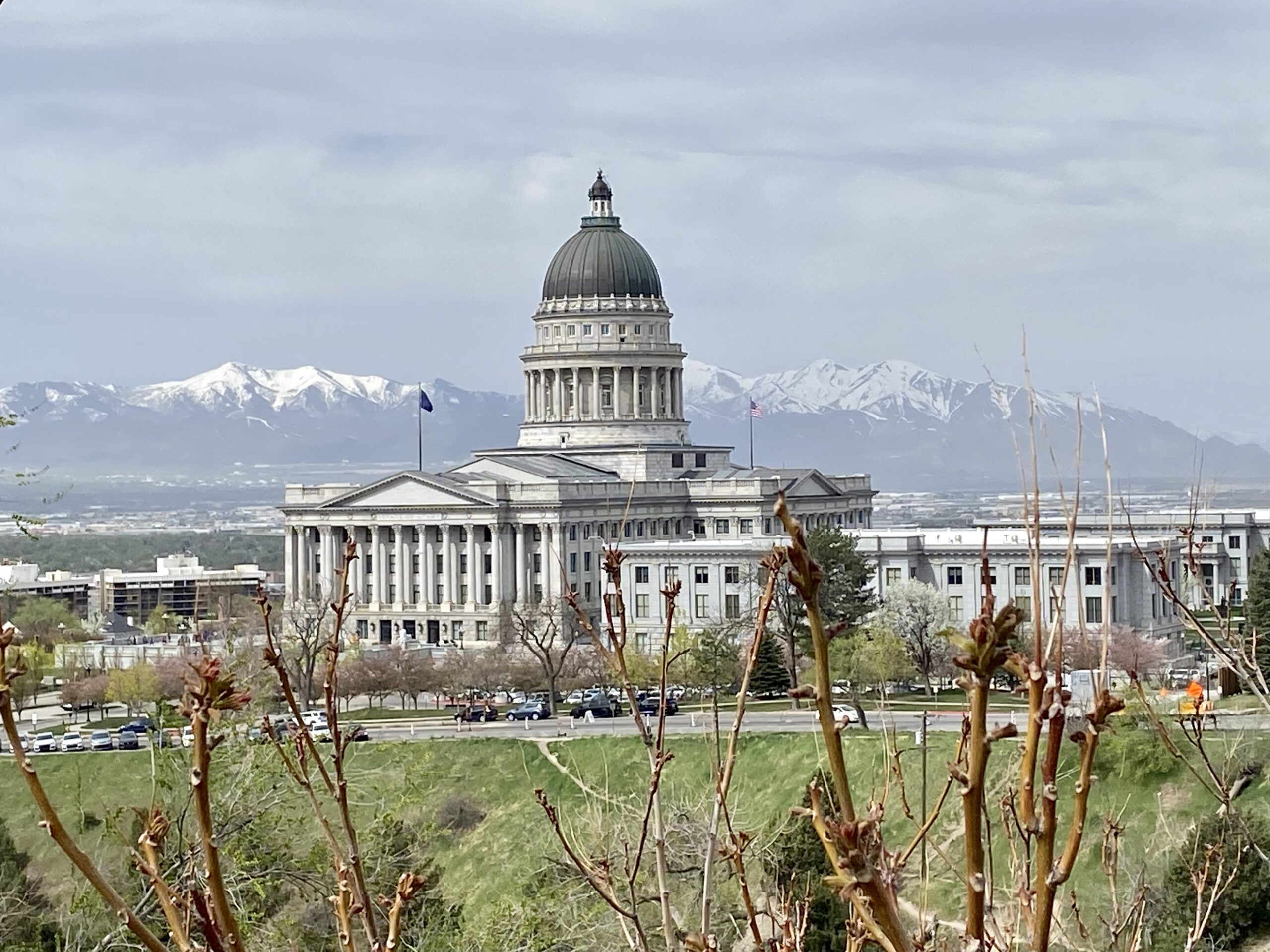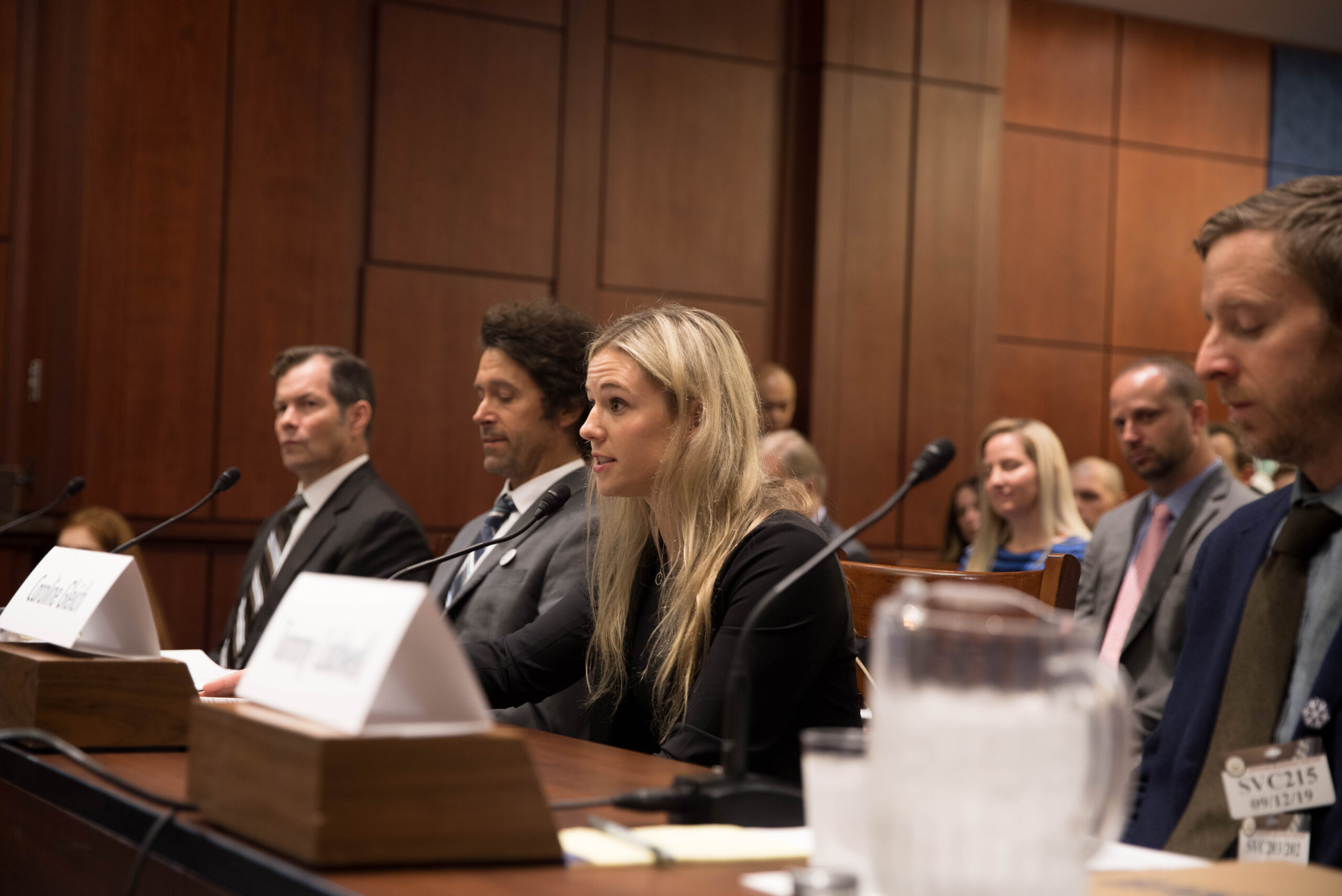Politics
More independents than ever are running in Utah. Could they actually cause a shakeup?
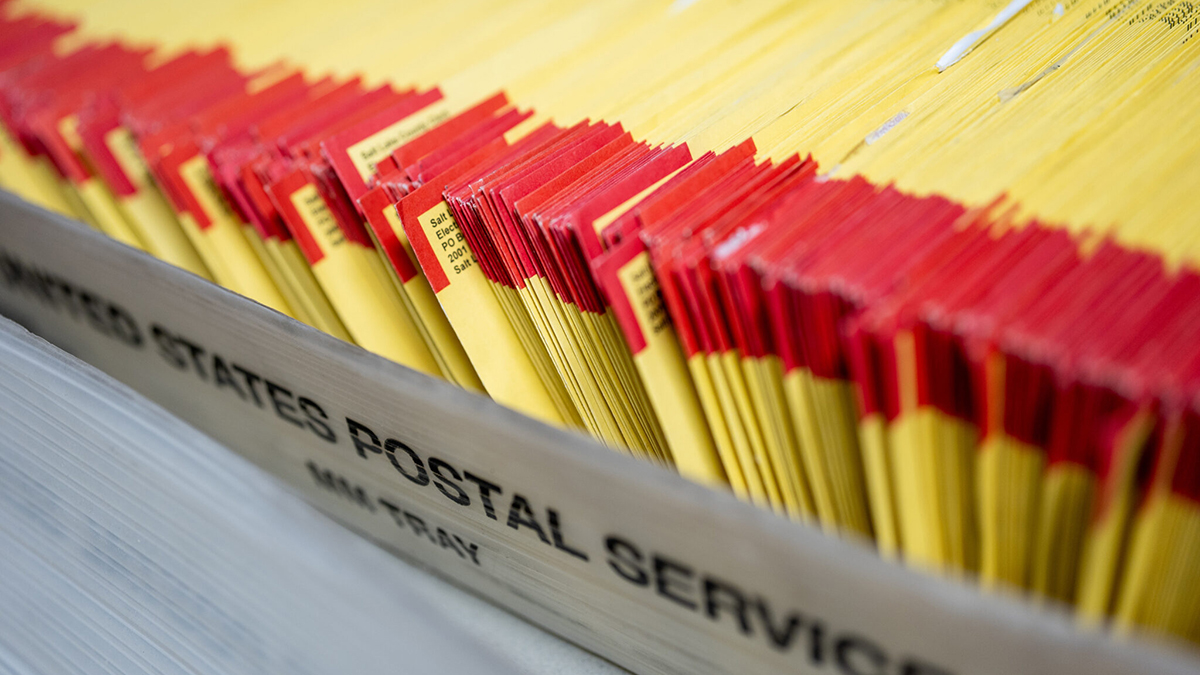
Ballots await processing at the Salt Lake County Government Center in Salt Lake City as votes are cast in Utah’s primary election on Tuesday, June 25, 2024. Photo: Utah News Dispatch // Spenser Heaps
Using data from Evan McMullin’s Senate run, unaffiliates are targeting competitive districts. If they’re successful, they could capture some seats in the GOP-controlled Utah Legislature.
Written By Katie McKellar for Utah News Dispatch
In past election years, the typical Utah ballot has had maybe one or two independent candidates in a state where the Republican Party dominates statewide offices and a supermajority of the Utah Legislature.
But this year is different.
Thirteen candidates are on the ballot as independents — not affiliated with any party — for congressional, statewide, legislative and school board races. And that doesn’t even count candidates who have aligned with new alternatives like the United Utah Party or the Utah Forward Party, meant to offer voters solutions-focused, moderate options in a system that’s long been largely red versus blue. United Utah has eight candidates in the running, and Utah Forward Party has three.
It’s a special year for independents. If the sheer number of candidates that care enough to run is any indication, it’s demonstrating there’s a hunger for something different — even in a presidential year when the two-party system is as entrenched as ever on the national stage.
Of course, the real test for that will come on Nov. 5. Independents are typically long-shot candidates, but a coalition of them are taking a data-informed approach to this election, and they’re confident that they have a viable path to victory.
“I think it’s going to shock people when several of these races actually go independent,” said David Hinckley.
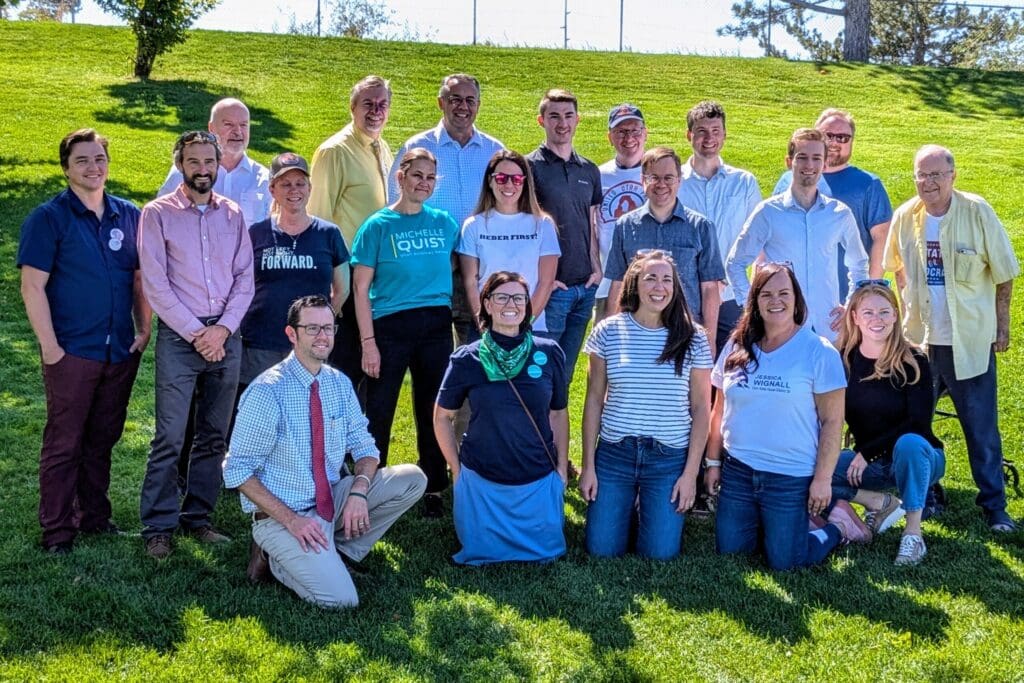
How third-party candidates and independents are working together
Hinckley is a Utah Forward candidate who dropped out of the Senate District 24 race in Utah County to give unaffiliated candidate Lori Spruance a better chance against Republican Rep. Keven Stratton, who is vying to fill a vacant seat left open by retiring Sen. Curt Bramble, R-Provo.
“We had some polling that showed we both have a chance to win if we have a one-on-one race, and she had the advantage,” Hinckley said of Spruance, adding that her position as a professor at Brigham Young University has elevated her profile in the community and her ability to campaign. “She was the one that was really poised and ready to go the distance.”
Hinckley’s decision to withdraw demonstrates a willingness for third-party candidates and unaffiliates to work together to increase their chances of success.
They’ve also held group “Meet the Moderates” campaign events where Utah Forward and United Utah candidates and independents have come together to showcase “the growing number of moderate voices in our state who are committed to improving elections and pushing extremism out of politics,” as the Utah Forward Party described it on its website.
But do these candidates actually have a real shot?
Take the race Hinckley dropped out of Senate District 24, for example. It spans parts of Provo and Orem in Utah County and into Wasatch County. Typically, Utah County is known as a highly conservative area that consistently votes Republican. But interestingly, it’s one of the districts that independents are eying as competitive.
Hinckley noted District 24, home to Brigham Young University, along with a number of Utah Valley University student housing, is one of the youngest districts in the state.
“Younger people in particular are a little bit less married to the party,” Hinckley said. “They haven’t spent their whole lives listening to right-wing talk radio, and they’re willing to look at the party and really see that there’s something wrong and they want something better. … They’re looking for alternatives.”
The data is compelling, too. In Utah’s 2022 U.S. Senate race, Sen. Mike Lee’s independent challenger Evan McMullin got nearly 45% of the vote in Senate District 24, while almost 21% of that district voted for a Democrat in the 2022 congressional races.
“Evan McMullin, he didn’t win. But he did give us really important data about what happens in every district in the state when you run an independent in the centrist space against a Republican,” Hinckley said. “We found out that there are several places in Utah that really are crying out for something different. And surprise, surprise. Bright red Utah County … happens to be a place where people are looking for something different.”
Using McMullin data, this firm has been recruiting, helping independents
Matt Lyon used to be a campaign manager for former Salt Lake City Mayor Ralph Becker, and is a former director of the Utah Democratic Party who has been involved with multiple progressive causes and candidates. In 2022, he was a consultant for McMullin’s campaign.
Now, Lyon is managing partner of Blueprint Public Affairs, a firm that’s been helping independent candidates. Using McMullin’s 2022 election results, Lyon said he targeted several competitive districts, and he recruited two independents. They included:
- Alisa Cox Van Langeveld, an unaffiliated candidate running against Sen. Todd Weiler, R-Woods Cross, in Senate District 8, where Democrat Aaron Wiley and Constitution candidate Laren Livingston are also competing. In District 8, 57.4% voted in favor of McMullin in 2022, but there were no Democrats or other third-party candidates in that matchup with Lee.
- Monnica Manuel, an independent who is challenging Sen. Wayne Harper, R-Taylorsville, in Senate District 16. There, 50.7% voted for McMullin in 2022. No other candidates are in the race, which increases Manuel’s chances.
“The majority of candidates running as independents, I did not recruit,” Lyon said. “They just filed themselves.” However, Lyon said he’s been helping other independent candidates in their bids, with several coming to him after other groups recruited them to run.
Patrick Belmont, a watershed sciences professor at Utah State University, also went to Lyon when he was considering his run in House District 3 against Republican Jason Thompson. In that district, 53.2% voted for McMullin.
One other independent is running in the House: Jessica Wignal, who is challenging Rep. Ken Ivory, R-West Jordan, in House District 39. She’s the only other challenger left standing, after Democrat Kate Staples withdrew. In that district, McMullin got nearly 49% of the vote.
Lyon said he believes independent candidates have “great chances,” but he said he’s especially watching all five independents running in the Senate. Aside from Spruance, Van Langeveld, and Manuel, other independent Senate candidates include:
- Pamela Bloom, who is the last challenger standing against Sen. Lincoln Fillmore, R-South Jordan, in Senate District 17. There, about 47.5% voted for McMullin.
- Oran Stainbrook, who is running against Sen. David Hinkins, R-Ferron, in Senate District 27. Democrat Corbin David Frost is also in the race. In District 27, McMullin got 32% of the vote.
“I think we’re definitely going to have some successes,” Lyon said.
He has eyes on the Senate especially, though, because he said it would take only one or two independent candidates to make a difference, even though Democrats or independents would need to flip at least four Senate seats to break the Republican supermajority.
What kind of impact could electing independents have in the Legislature?
Lyon pointed to what happened with Amendment D — a wildly controversial proposed constitutional amendment that the GOP-controlled Utah Legislature voted in a special session to put on the Nov. 5 ballot, asking voters to cement the Legislature’s ultimate control over all types of ballot initiatives. However, the courts voided the question because its ballot language was misleading and because state officials failed to meet constitutional publication requirements.
Lyon noted that only two additional “no” votes in the Senate would have stopped Amendment D from going on the ballot because constitutional amendments require two-thirds legislative approval.
“Two votes in the Senate was all that was needed. Five in the House,” Lyon said. “Two votes … make a difference. It will determine the outcome and stop (another iteration) of Amendment D next time.”
Lyon said what happened with Amendment D has also energized independent campaigns, as it demonstrated the problems with one party having supermajority control of the Legislature.
“Amendment D has changed the way these elections feel, hands down,” Lyon said. “People have seen that as gross legislative overreach, and they see it as a partisan infrastructure that is out of touch and out of whack with the residents of these districts. And in that environment, I think these candidates have become more competitive as a result.”
Hinckley said if even just one independent wins election this year, it could have a “huge impact” — because it could signal that running as an independent can actually work.
“What it’s going to do is break through that barrier, break through that ceiling of, ‘Can an independent get elected?’” Hinckley said. “It shows the viability of the model, that when you run an independent in a race without a Democrat, they have a better chance of winning. And suddenly, it’s like, ‘Oh, let’s do that in several races.’”
In a red state like Utah that’s been resistant to electing Democrats, Hinckley said independents could play a role in eventually breaking the GOP control on the Utah Legislature. It may not happen this year, but depending on Nov. 5’s election results, it could influence future campaigns.
“It would be a ground shaking moment if we can get some independents elected,” Hinckley said. “Because suddenly, in the next cycle and the cycle after, this is going to be a model that everybody’s going to be thinking about.”
















